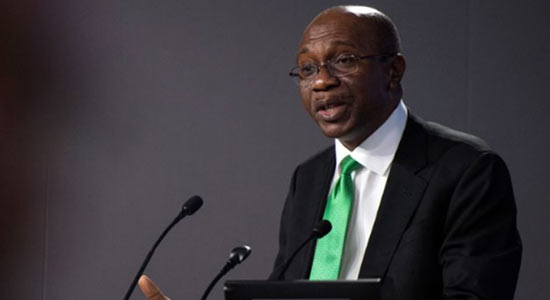SECTOR INSIGHT 20/04/2022
Nigeria Opts Out Of Global Tax Deal, Cites Economic Impact

Nigeria has opted out of a global tax deal negotiated under the Organisation of Economic Cooperation and Development (OEDC)/G20 Inclusive Framework on Base Erosion and Profit Shifting (BEPS).
BEPS refers to corporate tax planning strategies used by multinationals to shift profits from higher tax jurisdictions to lower tax jurisdictions or no-tax locations where there is little or no economic activity, thus eroding the tax-base of the higher-tax jurisdictions using deductible payments such as interest or royalties.
Kenya, Pakistan and Sri Lanka also opted out alongside Nigeria.
Nigeria’s position was predicated, among others, on the unreliability of the economic impact of the deal for developing countries.
The OECD estimates that countries lose $100-$240 billion worth of revenue annually to BEPS practices, which is the equivalent to 4-10 per cent of the global corporate income tax revenue.
The deal set out to introduce a global minimum tax rate and new profit reallocation rules, which aims to give countries a fairer chance to collect tax revenues from multinational enterprises (MNEs) operating in or generating revenues from their jurisdictions.
In a new report titled, “OECD Global Tax Deal: Key Elements, Opportunities and Challenges,” Global Financial Integrity (GFI) stated that the framework represents a group of countries and jurisdictions working together to address systemic issues within the global taxation system that cause an inequitable distribution of tax revenues among countries and jurisdictions.
It operates under the leadership of the OECD, but any country or jurisdiction is allowed to join and participate.
The global tax deal represents a major reform to the rules governing the international tax system, aimed at bringing an end to tax havens and profit-shifting by multinational enterprises The deal specifically aims to address challenges that arise from the digitalisation of the economy, and is broken down into two pillars.
Pillar 1 aims to reallocate multinational MNEs’ profits and taxing rights to market jurisdictions while Pillar 2 introduces a global minimum tax rate.
The Inclusive Framework releases the blueprints for the two-pillar solution to address tax challenges arising from digitalisation of the economy.
A total of 140 tax jurisdictions were part of the Inclusive Framework when the negotiations commenced, the report highlighted.
After the conclusion of the high-level agreement in October 2021, Mauritania joined the Inclusive Framework as the 141st member in November, and also agreed to the two-pillar statement.
In total, 137 of the 141 member jurisdictions have agreed to the two-pillar solution while Kenya, Nigeria, Pakistan and Sri Lanka opted out.
However, Nigeria expressed concern with Pillar 1 particularly, claiming that the OECD’s assessment of the economic impact for developing countries was unreliable.
Also, the mandatory dispute resolution element was one of the reasons for Kenya and Nigeria to disapprove of the deal because of concerns around losing sovereignty due to tax issues having to be resolved in residence countries.
Although the Nigeria made no disclosures of its own calculations on potential revenue, its conclusion was that it was not worth the high cost of implementation.
Some of the concerns around the deal and reasons why Nigeria and the other countries rejected it included: Lack of transparency in negotiations, exclusion of majority of developing countries, the issue of too many MNEs out-of-scope, and limited impact for developing countries, among others.
According to the report, although the agreement was negotiated under the Inclusive Framework, a substantive part of the process was carried out within the G7 and G20.
This in turn made the process less transparent and gives rise to the concern that smaller and less rich countries were not given equal participation.
Similarly, although the Inclusive Framework allows all interested jurisdictions and countries to become members, there are conditions and annual fees they have to commit to in order to join.
The majority of African (52 per cent) and Least Developed (78 per cent) countries have not joined the framework.
Civil society organisations (CSOs) had also pointed out that this makes the agreement less inclusive than it purports to be.
There is also the issue of too many MNEs out-of-scope. The scope of companies to which this deal is applicable is narrow and leaves out many of the companies operating on the African continent, including Uganda.
The deal also excludes companies working in the extractives industry, although this sector has been flagged to be more susceptible to illicit financial flows.
The reallocation rule applies to only a small portion of the profits (25 per cent) of ‘residual profits’ above 10 per cent profitability) of about 100 corporations that qualify (those with more than 20 billion euros in profit).
“Oxfam estimates this would result in only $140 million Ugandan shillings (UGX 500 billion) and US$8 billion (UGX 28.5 trillion) in annual revenue for low-income and middle-income countries respectively.
“As such, it is unlikely this will bring about structural changes in international corporate tax distribution, and may not even be worth the implementation costs for the smallest developing countries,” the report stated.



